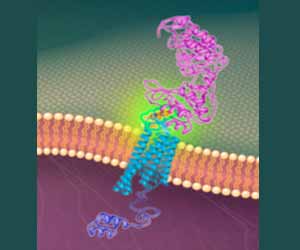- Home
- Editorial
- News
- Practice Guidelines
- Anesthesiology Guidelines
- Cancer Guidelines
- Cardiac Sciences Guidelines
- Critical Care Guidelines
- Dentistry Guidelines
- Dermatology Guidelines
- Diabetes and Endo Guidelines
- Diagnostics Guidelines
- ENT Guidelines
- Featured Practice Guidelines
- Gastroenterology Guidelines
- Geriatrics Guidelines
- Medicine Guidelines
- Nephrology Guidelines
- Neurosciences Guidelines
- Obs and Gynae Guidelines
- Ophthalmology Guidelines
- Orthopaedics Guidelines
- Paediatrics Guidelines
- Psychiatry Guidelines
- Pulmonology Guidelines
- Radiology Guidelines
- Surgery Guidelines
- Urology Guidelines
Cholesterol may have role in release of insulin by pancreas’ beta cells, finds study

UAE: A recent study in the journal Molecular and Cellular Endocrinology has thrown light on the role of cholesterol in the release of insulin by the beta cells of the pancreas. The researchers focused on the orphan G-protein coupled receptors (GPCRs) found on the surface of beta cells, which according to them had a significant effect on insulin release.
The present study by Albert Salehi, Clinical Research Center, Lund University, Malmö, Sweden, and colleagues used RNA sequencing and cDNA microarray data from diabetic and non-diabetic human islets as well as rat INS-1 (832/13) cells to profile the expression patterns of 90 different orphan GPCRs in β-cells.
They found that GPR183 activation causes more insulin release in cells from human donors and rats. The process involves the receptor binding to a specific metabolite, which forms when liver metabolizes cholesterol. High cholesterol causes the production of this specific metabolite, which in turn increases insulin release. This leads to hunger, possibly leading to eating more and weight gain. This explains why people with high cholesterol are often overweight. If this receptor is blocked from binding to the metabolite, and regulate insulin release, this could reduce hunger.
"The beneficial impact of GPR183 activation on β-cell function makes it a potential therapeutic target to prevent or reverse β-cell dysfunction," wrote the authors.
The researchers also believe their findings could help to develop ways to prevent people with type 2 diabetes from losing the ability to produce insulin. This can happen over time as beta cells get damaged by continually high glucose levels.
Salehi added: “If we can somehow activate this receptor in the future, it could lead to the development of drugs that stimulate insulin production in individuals with low levels of the cholesterol metabolite. This could be done with a substance similar to the specific cholesterol, with the ability to bind the receptor.”
"Further in vitro and in vivo works are still needed to validate and expand the current hypothesis and to test whether this receptor (GPR183) can be targeted for potential therapeutic purposes," concluded the authors.
The study, "Orphan G-protein coupled receptor 183 (GPR183) potentiates insulin secretion and prevents glucotoxicity-induced β-cell dysfunction," is published in the journal Molecular and Cellular Endocrinology.

Disclaimer: This site is primarily intended for healthcare professionals. Any content/information on this website does not replace the advice of medical and/or health professionals and should not be construed as medical/diagnostic advice/endorsement or prescription. Use of this site is subject to our terms of use, privacy policy, advertisement policy. © 2020 Minerva Medical Treatment Pvt Ltd